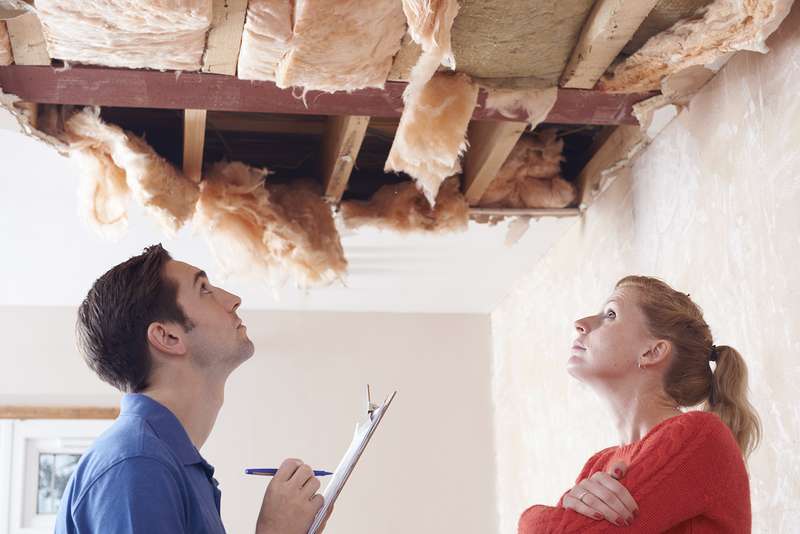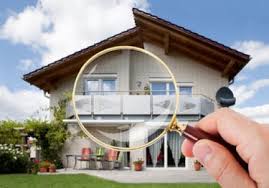How to Find a Trustworthy Home Inspector
A home inspector will be evaluating the property that you’re interested in buying and it is important that you choose one who is reliable and trustworthy so that you can rest assured that your home inspection is carried out thoroughly. Here are a few tips on how to choose the best home inspection company
1. Ask for the Experience and Certificate of the Home Inspector
It is important to hire a person who has adequate knowledge and experience about home inspections. Since many states require home inspectors to be licensed, it is even better if you hire someone who has proper training and does this job full-time at a professional organization.
2. Ask Your Real-Estate Agent for a Reference
If you are buying a house through a real estate agent, it is convenient for you to hire a home inspector. All you have to do is to ask your agent to refer you to a trustworthy inspector and your work will be done. The reason we are encouraging you to talk to your agent is because most real estate agents interact with home inspectors on a regular basis. They know who the experts are and they are motivated to connect you with the most experienced professional.
3. Relevant Reports
Before hiring a company for your potential home to be inspected, you should ask them to show you sample reports so that you have an idea of the extent to which the home inspector will vet the house.
4. Read Reviews
The good thing about the digital age is that you have easy access to the reviews posted on websites. Independent review sites like Yelp and Google allow customers to write a review of a company based on their personal experience. This allows potential customers to choose the inspectors wisely.

Request a sample inspection report.
Home inspection reports can come in a lot of different formats, from walls of text to colorful reports with photographs. You will have an easier time reading the report if it is designed to be accessible. Any inspection company you are considering should be able to send you a sample report so you can see if the format works for you.
I would highly recommend selecting a home inspector who provides color photography of the issues they find. When it comes to home inspections, a picture is worth having. The link above shows the type of inspection report you should be looking for. Notice the vivid photos showing the issues accompanied by a description of the problem. Please note – I do not know Home Gauge as they are not in my market. This type of report, however, is what you should be looking for.
When communicating issues to the seller having pictures makes things so much easier. Sometimes it is tough for laymen to discern problems without being able to see exactly what the inspector is referencing.

Ask What You Get for the Price
Inspectors without specialized credentials typically charge around $300 to $1,000, depending on the home’s location and size, the inspector’s experience, and the scope of the inspection itself.
Some inspectors will add free services not covered by a basic inspection, such as using a drone to view the roof or placing an infrared camera on walls, ceilings, and floors to measure temperature differences that suggest the presence of damaging moisture. Others will charge extra for those services. Still others will refer you to an outside expert to do that work.
Be aware that you may have to pay extra for specialized tests that aren’t covered by the initial home inspection. Common risks that may need more testing include termites, radon, and mold.

4 Things That Fail A Home Inspection
One quick clarification: A home inspection isn’t necessarily a “pass” or “fail” test. It’s more about getting a description of the home’s physical condition and giving an assessment of what may need to be repaired or replaced in the home.
Ground sloping or draining toward the house.
In a perfect world, every lawn would have at least a 3% slope away from the home, which allows water to flow away from the home, preventing water damage. Even if the ground were graded correctly (for every 10 feet away from the foundation, the land should drop two to three inches), the house would settle, and the soil under the foundation may shift.
Problems with the foundation
Aside from water-wicking, the home inspector will look for other issues with the foundation. They’re going to look for cracks, too. 60% of homes in the US are built on land with some clay content (also known as expansive soil), which has the potential to shift up to two inches per season. A cracked foundation could mean there are framing problems, roofing issues, doors and windows that will not close, and leaks in the basement
Issues with plumbing and pipes
Plumbing problems and leaky pipes are common things that fail a home inspection. Sometimes these issues can be as simple as a leaking faucet or a slow drain, but they can also encompass larger problems, such as cross-connection issues (Where another water source is contaminating household water), or a need to replace the pipes. Plumbing is a big cause for concern because if there’s a hidden leak that’s left unrepaired, it could cause mold to spread throughout the home.
Mold
Typically when we think of harmful mold in a house, we automatically think of black mold, also known as Stachybotrys Chartarum. What a lot of people may not realize is that exposure to any kind of mold could lead to a variety of health concerns, such as respiratory problems, headaches, skin irritation, and more.
Common repairs needed after a home inspection
Beyond things that designate a property safe and habitable, home inspectors also look for issues that make your home liveable. You may be able to negotiate repairs on the following things with your seller, though they’re less likely to be mandatory:
- HVAC issues
- Plumbing issues like poor water pressure or leaks
- Broken appliances
- Roofing (if not categorized as a structural hazard)
- Drainage issues
What’s necessary and what’s not will depend on where you are, the contract you’ve negotiated, and whether your financing is contingent on certain repairs being made.